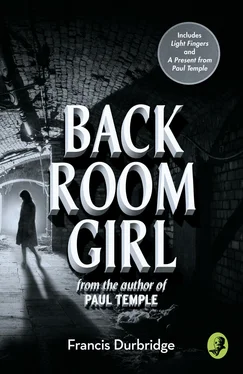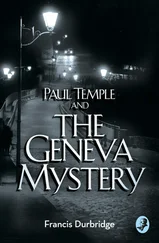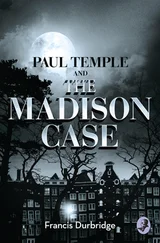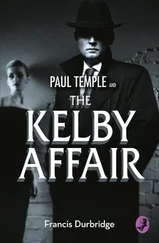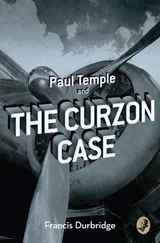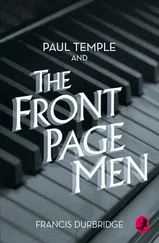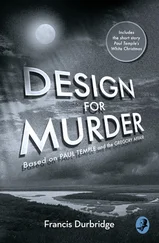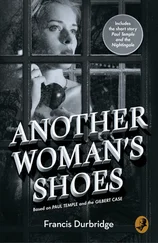It was, in fact, such a retreat as every Fleet Street journalist, with ambitions towards authorship, dreamed about – ‘far from the madding crowd’.
So he had cycled back to Shingleton once more, haggled with the manager a little over the rent, and as he didn’t want to move in until the following April, paid in advance so that in the meantime no one else would snap up the place. A year, he had thought, would be long enough to enable him to get the book written, but the English climate, even in the south-west, was not such as to make him want to start living the open-air life in the winter, at least to begin with. After he had got acclimatized it might not be so bad, and if he liked it he could stay on after he had finished the book. The rent and what it would cost him to live wouldn’t make too big a hole in his war gratuity, still untouched, and even if he didn’t succeed in selling the book he’d be able to hang on for a while at any rate. He had no intention of returning to Fleet Street without making a fight to avoid that fate.
Besides, as he intended to grow as much of his own food as possible – there was a plot of promising land by the side of the chalet – he might be able to make a little pin-money by selling his surplus to the shops in Shingleton and Torcombe. If he did not move in until the following spring, Barwell and Co. would have ample time to get the place renovated and cleaned up. He had arranged to let the manager know well in advance the exact date, and the manager had promised to get one of the village women to go in and light fires, air the place and lay in some food for him.
Roy had gone back to Fleet Street feeling very pleased with himself. He had not told anyone except Bill of his plans. The latter thoroughly approved of his arrangements, got quite enthusiastic about the chalet, and threatened to come and stay with him when he could get away from the ‘blasted corpses’ he had to dissect from time to time. ‘OK,’ Roy had said, ‘but don’t you come popping down every weekend; I’m going down there to work, not keep a hostel for pals who are too mean to pay for their holidays.’
Roy had found his crime routine during the winter wearisome and stale. He had been surprised to find how eagerly he was looking forward to going to No Man’s Cove and seeing what transformation – at least he hoped it would be a transformation – had been wrought in the chalet and to get to work on finishing it. It had been with a peculiar glow of satisfaction that he had gone to see Jim Tailby, his news editor, and told him he was resigning.
Jim had been thunderstruck. Roy had thought that he regarded him a little oddly as he said: ‘Look here, old man, are you sure you’re all right? If you’re not feeling up to the mark – and I shouldn’t be surprised if you weren’t after all you went through during the war – take a couple of months sick leave, but don’t chuck up your job altogether. We should find it damned difficult to replace you; no-one else has got your contacts. If it’s money—’
‘No, Jim, it isn’t money and I’m perfectly well,’ Roy had told him. ‘It’s just that I feel I’ve got to get away. It’s that book I told you about. If I don’t get it out of my system now, I never shall.’
‘Well, I suppose you know your own business best,’ Jim had replied ruefully, ‘but I take a damned poor view of it. I’ll bet you’re back here inside a month asking if your job’s been filled.’ He shook his head somewhat ruefully, then smiled. ‘Well, if it has I’ll fire the bloke who’s got it. You know that as far as I’m concerned you can come back any time.’
‘Thanks, Jim,’ Roy had said. ‘That’s very handsome of you and I won’t forget it, but I doubt if I’ll be back. I’m going to finish with crime reporting once and for all. After that – well, you know as much as I do. Maybe I’ll wander round the world a bit – if I’ve anything left to wander with.’
‘Any one you mean,’ Jim had countered with a laugh.
‘No, not any one,’ Roy had replied, ‘and you ought to know me better than to think there’s a woman behind all this, so don’t get any romantic ideas into your head. I love the ladies, when I’ve time for ’em and nothing better to do, but not enough to get myself entangled with one of ’em. Confirmed bachelor and man’s man, that’s me.’
‘Your sort always fall the hardest,’ Jim had said. ‘I’ve seen it happen to more than one. And mark my words: one of these days you’ll fall good and proper. You’ll pick up some nice girl somewhere and you’ll find you can’t put her down.’
‘To hear you talk, anyone would think I was going on the halls with an acrobatic act,’ grinned Roy.
‘There are worse ways of making a living,’ grunted Jim, dismissing him with a significant nod, as both his telephones rang simultaneously.
Was he as woman-proof as he had boasted? Roy asked himself as he went into the chalet and set about getting breakfast. Fine man’s man you are now, he reflected, getting all excited about seeing a woman’s footprint in the sand. Ah well. He flipped Angus a couple of biscuits from the table’s edge – he seemed to prefer them served that way – and as he ate he looked around the chalet. A trifle bare, he thought, but pretty comfortable on the whole and a darned sight better than some of the dumps you were in during the war. And you’re on your own, with no one to please except yourself. Then he suddenly realized that he was not alone, that visitors had passed within a stone’s-throw of his door not so long ago. He found the thought somewhat disturbing.
He’d had to pig it a bit the first week or so while he was moving in and getting the place to rights, and had felt that the whitewashing, the distempering and the painting, which he had done himself, would never be finished, especially the cleaning up afterwards. At first he had been too tired at night to do much writing, but gradually existence here, as in Fleet Street, had settled into a more or less regular routine, with this difference – it was a routine of his own choosing. No one told him what to do or where to go. He got up when he liked, ate when he liked, worked at the book when he felt like it, or in the garden he had made; slept, walked, swam, sunbathed, or just loafed around as the fancy took him. He observed only one general rule – when it was fine he stayed outdoors as much as possible, saving the indoor jobs for when it was cool or wet.
After the hurly-burly of Fleet Street it seemed an ideal existence, so much so that he was thinking of staying here indefinitely. If he could make enough money out of his writing to live, not luxuriously, but simply as he was doing now … That was the snag, but he had high hopes of the book, which was going well, and maybe the Tribune would serialize it before it was published – if it ever was. He had also had one or two promising ideas for other books.
‘I could think of a hell of a sight worse existence than this, couldn’t you, Angus?’ he asked the dog. Angus amiably chuntered agreement in the way Cairns do, for all the world as if they were talking. Angus, in fact, was having the time of his life. All through the war he had stayed with Roy’s sister in Cheshire, seeing his master only when he came on leave and then not for long. He did not know what had led to his being brought to this seventh heaven, but he was all for staying here as long as possible.
Roy had found him an ideal companion, for the dog had kept him from feeling too lonely. The thing he had missed most had been the sound of other human voices – he had thought that would be the cacophony he would be most glad to get away from – and he had slipped into the habit of talking aloud both to himself and to the dog. When he thought he was doing too much of it – he’d heard it was one of the first signs of madness! – he got on his cycle and, with Angus running alongside him and barking madly, sped off along the cliff road towards Torcombe to spend the evening in the smoke-room of the Cliff Top Inn playing darts, draughts or dominoes and drinking ale with the fishermen, with whom he sometimes went out in their boats.
Читать дальше
